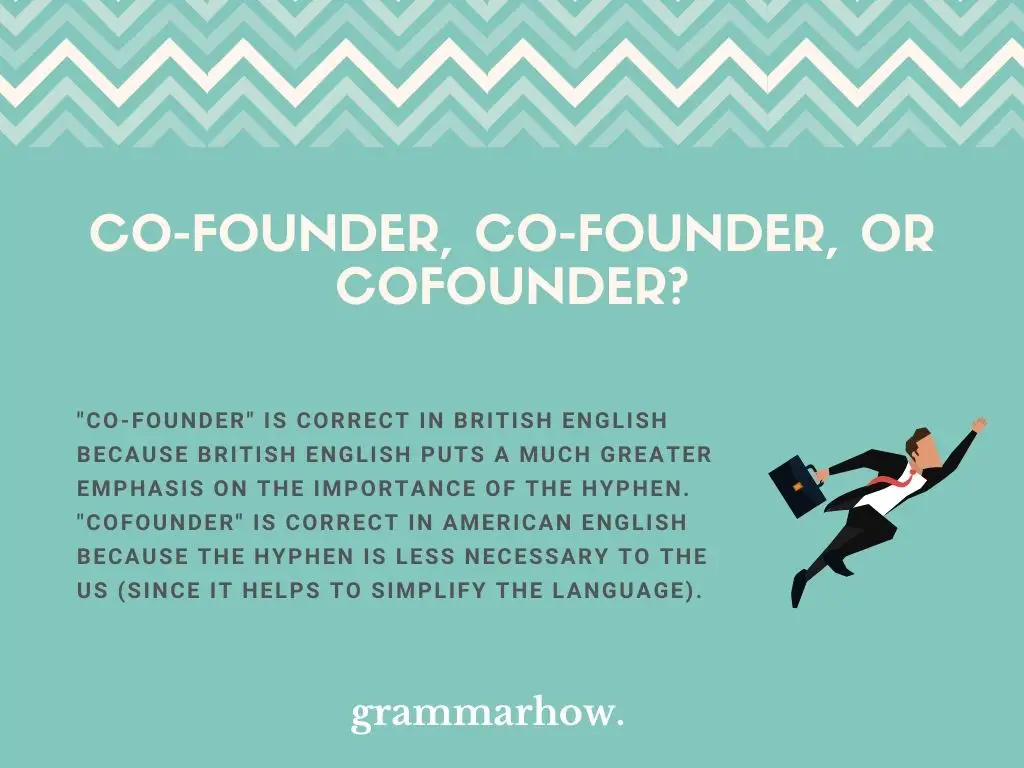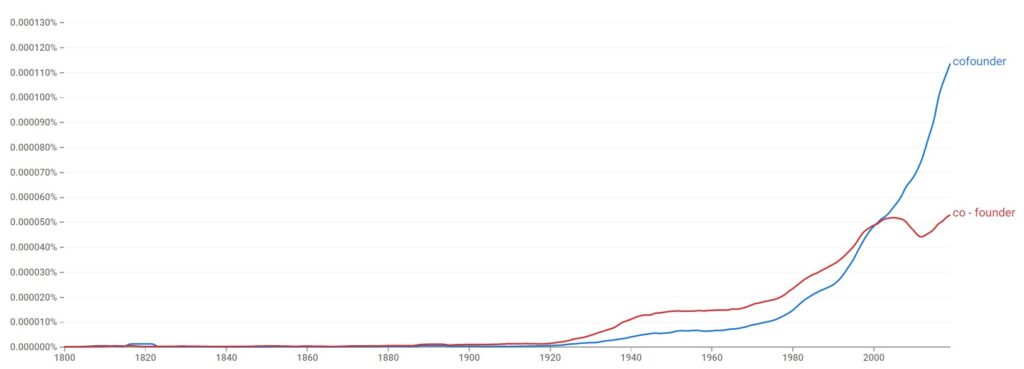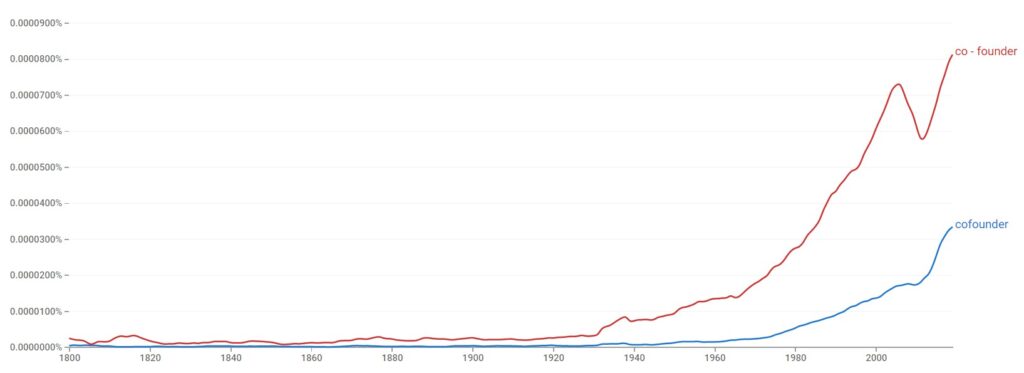It’s time to look at the word “co-founder” and how we write it in sentences. Is it one or two words? There’s a simple answer to that, and it comes down to whether it’s hyphenated or not. This article will explore which is correct.
Co-Founder vs. Co-founder vs. Cofounder
“Co-founder” is correct in British English because British English puts a much greater emphasis on the importance of the hyphen. “Cofounder” is correct in American English because the hyphen is less necessary to the US (since it helps to simplify the language).

To prove this, we’ve got some statistics to share with you:
According to Google Ngram Viewer, American English greatly favors “cofounder” as an option. This shows that they do not put much weight behind the hyphenated form because you can see that it doesn’t get nearly as much coverage.

On the flip side, according to Google Ngram Viewer, British English leans much heavier toward the hyphenated version. This shows that there’s a distinct difference between the two language choices.

Is “Cofounder” One Word?
“Cofounder” is one word when using it in American English. It is usually incorrect in this form when written in British English. If you’re going to write it in this form, make sure you know your audience (and make sure they’re from the US).
It might help you to see a few examples of how we can use this word:
- I am the cofounder of my company, and I will have the final say in what happens here.
- You are not the cofounder, and I think it’s time you took that out of your resume.
- Stop talking to the cofounder like that. He could sack you, you know!
- Can we take a moment to look for the cofounder? I feel like one of them is going to know what to do.
- I think you should hire him as the cofounder. After all, his ideas helped you pave the way to where you are now!
Sometimes, hyphens are dictated by the writing stylebook we follow.
However, since “co-” is already considered a prefix where a hyphen should be necessary, there are no grammatical differences between using “cofounder” and “co-founder” in American English, no matter which stylebook you use.
Is “Co-founder” Hyphenated?
“Co-founder” is hyphenated when we are writing in British English. It is also correct to hyphenate it in American English; however, it is much less common.
These examples might help you to make more sense of it:
- I am the co-founder of this company. I would like to take over from now on.
- You are the co-founder, so you need to make it clear that you want to get this job done.
- I think you should sign on as the co-founder now!
- Where is the co-founder? We need to ask him a very important question right away!
- He is signed up as the co-founder. However, he does not seem to know a thing about this company!
The “co-” prefix we use in the British English hyphenation is what is most important here. We use “co-” whenever we want to show that something is “together.”
Typically, a “co-founder” works alongside another (or collective of) “co-founders.” Therefore, each person can be deemed as a “founder,” while the “co-founder” makes up the title of each person within the group to show that they founded something together.
That’s why it’s so important to British English users to keep the hyphen. It shows the weight of “co-” as a prefix, and why it’s useful for us to use this.
Is “Co-Founder” Capitalized?
“Co-founder” is not a proper noun, and therefore, it does not need to be capitalized. We can leave both the “C” and the “F” uncapitalized when written in a sentence. However, when it starts a sentence or is in a title, we should capitalize it.
Incidentally, if “co-founder” is in a title, the capitalization rules are based entirely on your choice of title styles.
Some people like to capitalize only the first letter of each major word (removing conjunctions and short articles). In these cases, “Co-founder” is likely to be seen.
In another title style, some people capitalize every word, no matter how big or small. In these cases, “Co-Founder” is the correct capitalization for the word.
